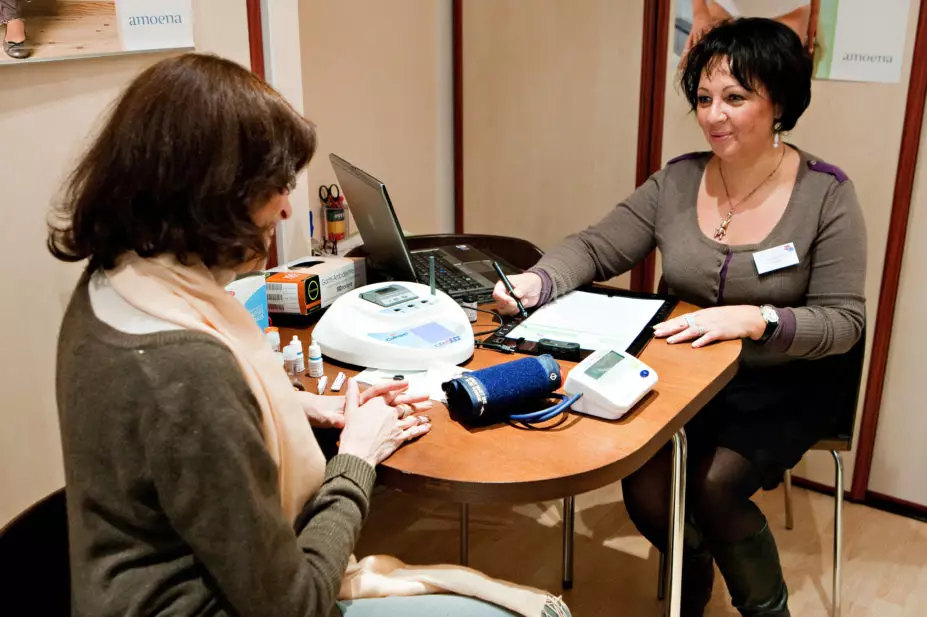
BSIP SA / Alamy Stock Photo
Nearly a third of primary care networks (PCNs) in the north west of England will be referring patients to community pharmacies using the Community Pharmacist Consultation Service (CPCS) by autumn 2021.
The CPCS, which replaced the NHS Urgent Medicine Supply Advanced Service (NUMSAS) and Digital Minor Illness Referral Service (DMIRS) pilots, was established to direct patients with minor illnesses or urgent prescription needs to a community pharmacy.
The service was piloted by GPs and pharmacists in the Blackburn with Darwen and Knowsley clinical commissioning groups (CCGs) in October 2019.
The GP CPCS was piloted across 12 areas of England, with some beginning in June 2019, and finishing in October 2020, after which it became a nationally commissioned service.
Within the first six months of the CPCS in Darwen, Lancashire, where the service was piloted in three GP practices and eight community pharmacies, NHS England said GPs referrals led to 1,034 pharmacy consultations, saving the equivalent of 68 GP appointments.
The service was then expanded to 40 pharmacies and 25 general practices in Knowsley, Merseyside, and 47 pharmacies and 27 general practices in Blackburn with Darwen, covering a total of 298,000 patients involving 6 PCNs.
In a post on the pharmacy section of its website, NHS England said: “Following the success of introducing the new pathway, the service is now being expanded into 30% of the primary care networks across the whole of the north west by autumn 2021.”
This expansion means GPs will be able to refer patients to community pharmacies in around 50 of the region’s 166 PCNs.
NHS England added that the referrals could see 6–8% of GP appointments in the north west “effectively directed into community pharmacy”.
This is in line with NHS England’s estimates in the ‘GP Forward View’ that 6% — or 20.4 million — of all GP appointments could be transferred to community pharmacy each year.
The GP ‘Digital minor illness referral service’ pilot, launched in Bristol, North Somerset and South Gloucestershire CCG in July 2019, found that 8– 9% of the GP appointment capacity of Bristol was being correctly referred to pharmacists.
However, minutes from the British Medical Association’s GP committee, published in January 2021, said that there had “been little push from NHS England over the past two months and very little take up for practices new to the CPCS”.
“This is due to the resurgence of COVID. Numbers of referrals of patients from the pilot sites continues to rise though slower presently,” it added.
Alastair Buxton, director of NHS services at the Pharmaceutical Services Negotiating Committee (PSNC), said: “A speedy rollout of the GP referral pathway to the service would of course increase the value of the service to individual patients, general practices and the wider NHS.
“However, the process has been gradual due to the need to develop local referral pathways first, and inevitably the ongoing pandemic distracted many practices from considering implementation until now.”
He added that local pharmaceutical committees “have been working hard at a local level with contractors, PCNs and [NHS England and NHS Improvement] regional teams to support the rollout, while the PSNC continues to work nationally to raise awareness of the referral pathway, including through our animation and infographic“.
“It is promising that some GPs have already recognised the value of this service and we hope that this referral pathway will create a new foundation of collaboration between general practices and pharmacies, which can be built on in the years ahead,” he continued.
Tahir Hussain, management support pharmacist at Cohens Chemist in Darwen and lead community pharmacist for Darwen PCN, said his pharmacy was receiving “around six to ten patients a day” from the PCN’s GP practices.
“I am in regular contact with the practices and if I do hold a consultation with someone that I think does need to see their GP, I call the practice direct and get them booked in for later that day.”
Bruce Prentice, project lead and clinical adviser to NHS England and NHS Improvement North West region, said: “General practices and community pharmacies have rapidly changed how they provide patient care to deal with COVID-19.
“The demand on general practice is highly likely to increase as services are restored following the second wave and having the capability to direct patients to local community pharmacists is crucial going forward.”


